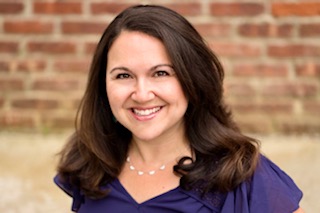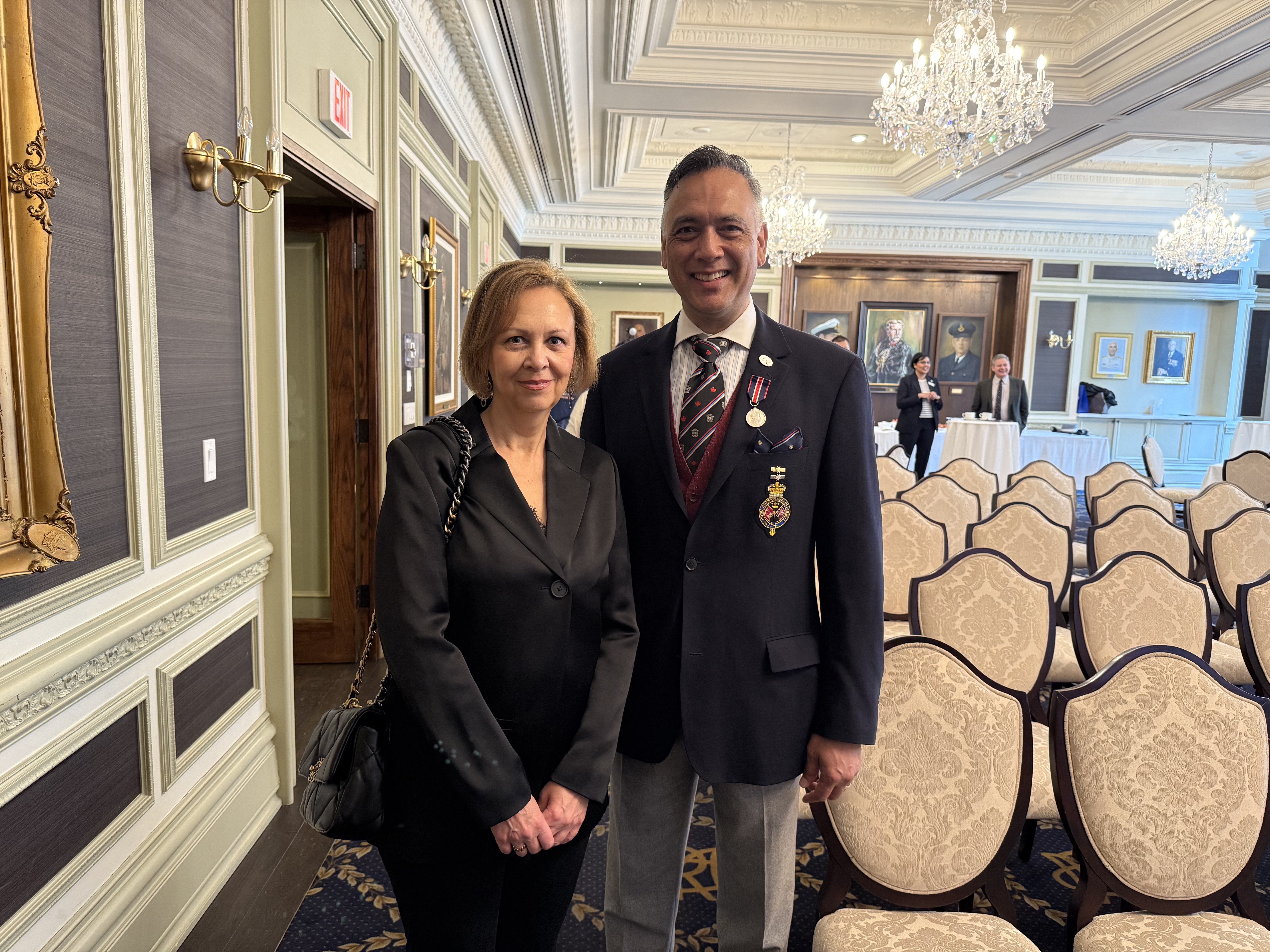Meet jibneh cheese entrepreneur Benita Kasbo

Benita Kasbo is a cheesemaker, entrepreneur and owner of Kasbo’s Market, based in New Jersey, U.S.
I met Benita Kasbo last year on Twitter. It was during COVID lockdown last year that I had the privilege of being one of the early adopters of Twitter Spaces, the social media platform’s live audio feature. One of the first people I met in Spaces was Benita, a bright and well-spoken Syrian-American businesswoman from New Jersey, U.S., whose story and business – making a special Syrian cheese, jibneh – intrigued me.
If you are on Instagram, you may have even caught our recent Instagram Live.
Earlier this month (June 10, 2022), I interviewed Benita Kasbo on Twitter Spaces, back at the place where we first met.
Here are some highlights from our conversation in the transcript below. Note the text from the original transcript has been shortened for length and edited for readability.
“My mission is to bring authentic Middle Eastern flavors and foods to your table.”
Show Notes:
You will learn:
- what Syrian Jibneh cheese is, what makes it unique and how it is made.
- tips on getting a food brand start-up off the ground (during COVID).
- how Benita landed a feature article in the New York Times (with millions of impressions and value of more than $150K) without having any PR experience.
“I came to the U.S. with my family as a toddler from Aleppo, Syria. I’m a proud Syrian American and I’m very excited to share my favorite traditional Middle Eastern staples with you.”
Audio Clip of Benita’s Mission(13 secs.)
“
Transcript (edited for length and readability)
*Interview Date: June 10, 2022 / Twitter Spaces
Shannon: What is Kasbo’s Market? Where did you get the vision?
Benita: Kasbo’s Market is a curated Middle Eastern food brand and it was inspired by my Syrian heritage. I was born in Aleppo, Syria, and I came to America when I was two years old. However, I wasn’t really Americanized because my family was very traditional. At home, we only spoke Arabic and at the school I spoke English.
I kind of grew up in two worlds. I honestly can say the best part about growing up for me was the food that I was exposed to. I always loved it and I would get excited if we got invited to someone’s house because I thought, what food they were going to serve us, cuz that’s how much I enjoyed the food of my culture.
As I got older and became an adult, I had this idea to do a food brand, almost 20 years ago. So I’m a little late, but it’s not really late. But I do wish I did start it earlier. What kicked it into gear for me was, actually back in 2018, I started working with Syrian refugees and I started helping them with translation.
That was during the height of the Syrian war. That really inspired me to say, how can I represent this culture in a positive way? Cause that was such a very difficult time for that part of the world. It still is, but people don’t talk about it that much anymore.
So I’ve been making jibneh since I’ve been married, so a long time, and I said, I really would love to share this with people. I started giving it out to friends, and friends of friends, and people would say, you should sell this, it’s so good, and nobody knows what it is. So I did start my LLC back in 2018, but I never got it up and going.
During COVID was when everything came together. While we were all home quarantining, I was able to get all my licenses and get everything properly done to have a real business. During the pandemic, I went for it and then I launched it.
Shannon: It takes a lot of guts and grit to get a business off the ground.
Benita: Totally completely. It’s still scary. There’s still a lot of questions. I always chuckle when you wrote entrepreneur, and you said that, because I don’t think of myself that way, even though I know that I am that by definition.
I just consider myself someone on a mission to expose people to food that maybe they’re not comfortable with or they don’t know. And so that’s really what motivates me is this mission to make it happen.
Shannon: Connecting food to culture. So what makes jibneh cheese unique?
Benita: Jibneh starts with curd. So I always joke around that I don’t have a cow in my yard. I’m not like going to get milk and make curd. I purchase curd and it starts with a curd recipe.
I try to make them as uniform as possible, but it’s not always perfect. Then, I salt them and they have to go through a curing process. What the curing process does is, number one, the salt penetrates the curd to give the curd the saltiness that you taste once the jibneh is fully made. And it removes the moisture.
And that helps makes it extremely meltable. Also it doesn’t get oily. Sometimes cheeses that are high in moisture, when you melt them, they tend to get oily. Jibneh doesn’t. So once the certain amount of hours pass and it’s cured, it goes through another process with cooking and seasoning. I use this Middle Eastern spice called mahleb, derived from seeds of cherry pits from the Middle East. These little seeds almost look like pinoli nuts and are very tiny. Then I finely grind them and it turns into a powder that releases an aroma of almonds and nuttiness, and a slight floralness. And that gets incorporated into the cooking process. Then the curds, as you’re cooking them, turn into cheese and these little mahleb seeds grab onto the curd.
Once it’s fully cooked, it comes out, and you see all the speckling on the jibneh and then I have to cool it immediately after. What the cooling process does, even though I’m not a food scientist, I just am an experienced person making this, is lock in the flavor of the jibneh.
Then the next day, you have to keep it overnight, it’s ready.
Shannon: I know on your website, you have pairings ideas. You talk about, growing up, you would eat watermelon and cantaloupe with it. It sounds refreshing.
Benita: It’s so delicious with watermelon or cantaloupe, because you get that sweet and savory combo. Also because the jibneh is low moisture. I don’t want to say it’s semi soft. I’d say it’s semi hard. So it’s softer than cheddar, but not as soft as mozzarella. So the texture of it along with fruit is delicious.
Shannon: Also you pair it with apricot jelly. I suppose probably any kind of fruit jelly or jam would be good on it. And then toast it.
Benita: In the Middle East, we love apricot jam. We love fig, even cherry would be so good with it because it has the seeds from the cherry itself.
So any of those types of flavors where you’re getting sweet with the salty is so delicious and whenever you have a warm piece of bread with a cold jam and then something salty on top, you’re getting so many different flavors and textures as well as the heat from the bread. It just makes for such a delicious bite.
Shannon: Where is your cheese available?
Benita: I do a farmer’s market right now for the whole month of June, in Madison, New Jersey, which is where my commercial kitchen is. And then it’s available at Ideal Cheese Shop in Manhattan, as well as Day Bars now in Manhattan, that happened recently and then, and also West Side Market in Chelsea.
Benita: And in Maplewood, New Jersey, it’s available at a store called the Maplewood Wheelhouse. So right now it’s four locations. Then there’s actually one coming in about 10 days and then, something even bigger is happening probably within the next month.
Shannon: Your mission… can, if we can just circle back to that for a moment because I love this idea of connecting food with culture. For you, you know, it’s not so much teaching people about Middle Eastern culture, but you love for people to be able to experience the Middle Eastern culture through food. Is that what I’m understanding?
Benita: Yeah, absolutely. Unfortunately, because of the news that comes out of that part of the world, it’s never positive. And I think that there’s a perception of what that is. People are enjoying hummus and falafels, but they’re not thinking about the people that come from there, I think sometimes. I really want that to be a focus, like where you’re thinking like, oh my gosh, like these people make these, this amazing food it’s, you know, a beautiful country. I wanted to start being a broader picture of where these places are and how wonderful they can be and just kind of dilute that image that they see on the news about all the war and all the stress.
So if I can be a voice for that, that’s really is my part of my mission. Sometimes people can be intimidated by foods from other cultures because they might think it’s complicated or they’re unfamiliar with. So I think that if I can simplify it for them, that’s another way for people to learn.
Shannon: When you got started, what was the greatest challenge for you?
Benita: I think the biggest challenge is actually just taking the first big step. I think that’s the biggest hurdle. Taking down the mental barriers that we put up for ourselves to go after it.
So that was like the first big thing, because I do have a young family, I have three children. It’s very busy. It’s a very complicated schedule and you know, it would be easy for me to make excuses as to why I can’t.
And then once I knew I was like, all right, that’s it, I’m doing this, after that, of course like logistically it’s challenging in the beginning, especially because it was during COVID, was getting my licenses and having people come inspect my kitchen. Those logistics were very hard.
But I made it work. I got it done. And then off I went. And you have to be okay with rejection because there is a lot of rejection. You have to be willing to go out there and knock on the door of places and ask if you can meet with the owner.
Shannon: One thing you did extremely well, and I was really proud of you, is that you managed to land a feature in the New York Times. As somebody who has over 25 years experience in PR as a public relations consultant and in media, I know how difficult it is to get publicity, but in particular, the New York Times. And here you are a small business owner, you didn’t have a big agency behind you, you didn’t have a big publicity budget as well, but you did it. You got this amazing piece. So congratulations.
Benita: Thank you so much. It was very exciting.
Shannon: How did you do it? Because maybe there is an entrepreneur or a small business owner listening. They may be in your industry or any other industry, and they want to do it themselves, too. And maybe by you sharing how you did it, that will inspire others to do the same.
Benita: I knew who Florence Fabricant [New York Times food writer] was, in terms of her name and what she’s about. And I said to myself, she’s in New York city, New York Times is obviously in New York. I’m not far from the city. And I said to myself, why not just try? She’s she may not email me back. Like if that’s the worst of it, I’ve had worse things happen to me. So what I did was I put together an email. And I wrote an email that was kind of personal. I talked about how I came from Syria when I was two years old. And how one of the best parts of my childhood was the food I was exposed to. I even threw in a joke. I said, I’ve been eating hummus and falafel before it was trendy. I explained to her what I was doing. I told her that I had started this food business during COVID and that, I would love for her to try it.
I said, okay, now we’ll just leave it out to the universe and we’ll see what happened. I thought it was a catchy subject line and the way I positioned it was I wrote there’s a new cheese in town. Have you tried it? And I thought that that would be a little eye catching. It was new to New York city. So I was like, she needs to know that this new thing is there and she’s a food lover. She’s a cookbook writer. I just thought that might grab her eye and, so off it went and then I just waited. I didn’t give it a lot of thought because I’m so busy. And then one day, six, seven [weeks later, I get an email directly from her, from Florence Fabricant, and she writes back to me and she says, hi, Bonita, I’m sorry in my delay getting back to you. I would love to try this cheese and I’d be happy to go buy it.
I was like blown away. When I got the email, I was shocked. I quickly replied and they said don’t worry about buying it. I’ll deliver it to you. So, that evening I put together a beautiful package and I personally delivered it to her building in New York city.
And then she communicated with me that she received it. And then her team contacted me and they said it will be in the New York Times next week.
And there you go.
And it was actually a pretty large article as well as the picture was about a four by six size. So that really blew me away..
Shannon: Congratulations because I do know how difficult it is. What business owner wouldn’t want to be in the New York times?
So thanks for sharing that. And hopefully your little journey getting yourself some publicity [00:14:00] has inspired others. I’m sure that has opened or will open in the future some doors for you.
Benita: It did. It actually helped me get into Zabars. Zabars is a very big name in New York and outside of New York as well.
So it has been helpful having that article in my pocket. My advice would be just try. Even if you’re not a food entrepreneur, whatever type of entrepreneur you are, is if it’s just an email, don’t say, oh, it doesn’t matter. Or they won’t read it. You don’t know. And you also don’t know what’s going on on their end. They may be in need of what you’re providing them. What was interesting about my timing with the New York Times was, even though I don’t celebrate Ramadan, my family’s Catholic, it coincided with Ramadan. Eid was actually that following Monday after the article was published. And so, it was just such a perfect timing for something that is Middle Eastern to coincide with the Ramadan holiday. That worked out great for Florence as well. And then that story was shared.
When it came out, I didn’t see as just like a win for me. It was a win for our culture. Like now people across the world are reading about something that comes from the Middle East. So it was a win for my people. It wasn’t just a win for me. And that really excites me.
My neighbour next door is Egyptian and he felt that way, too. He said, oh my God, it’s such a big deal that people will know about this thing that we eat. And I said, exactly, I’m like, great. It’s we eat? It’s not, you know, Syrians eat it. It’s across the Middle East. And that’s part of bringing it back to culture and tying it back into food and educating people. So it’s a win overall.
Shannon: If you had one piece of advice or one tip?
Benita: Just give it a try. You don’t know the timing, you don’t know what’s going on with the other person. You don’t know what their needs are. I have a friend whose husband does a lot of marketing and PR for corporations. And he said to me you helped her out, too. He goes, you gave her information about something that is so new and that helps her. And so just try, you just never know, reach out to people, DM them.
I mean, I’ve spoken to so many people that I never in my life thought I would ever speak to because of Twitter and emails and Instagram. I’ve connected with so many great people for my business. Just by trying. Don’t sell yourself short and just go out and do it.
Shannon: I would just like to acknowledge that this interview was powered by ExtraordinaryWomenTV.
AUDIO RECORDING OF INTERVIEW (raw file)
Shannon Skinner is an author, international speaker, creator/host of ExtraordinaryWomenTV.com, and a travel and wine writer. She can be found on Twitter at @Shannon_Skinner. Tweet to her.





